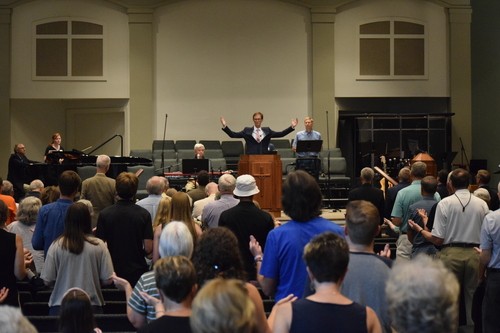
About Us
In the spring of 1985, 42 university students and 42 community members came together for a worship service, and on November 17, 1985, Clemson Presbyterian Church was established. Situated at the edge of Clemson University, our church has been given a unique opportunity to serve both the university community and the community at large. Almost 40 years later, we continue to be amazed at how the Lord is at work in the Clemson community.
We are a congregation of the Presbyterian Church in America (PCA).
We are a congregation of the Presbyterian Church in America (PCA).
